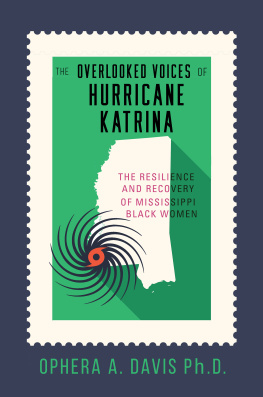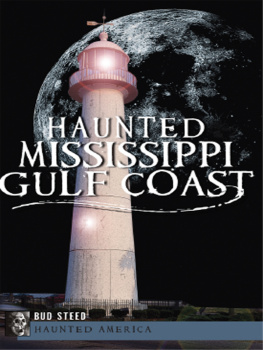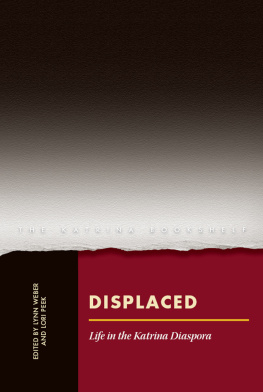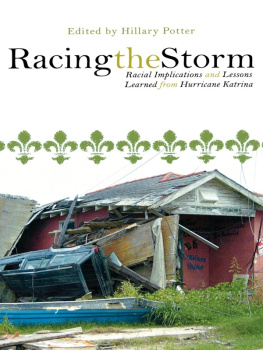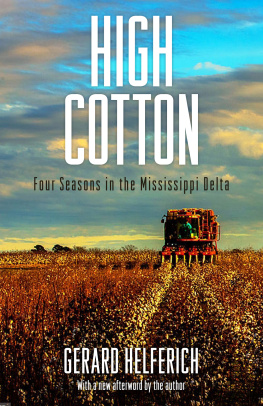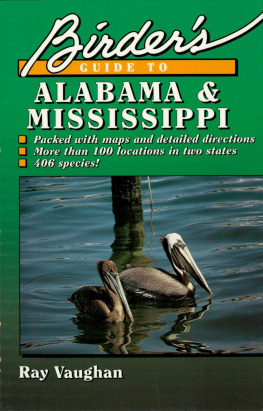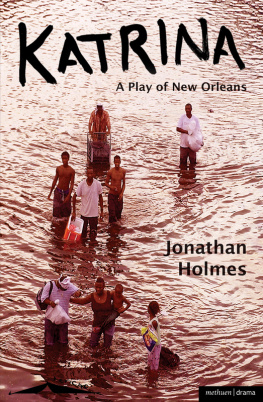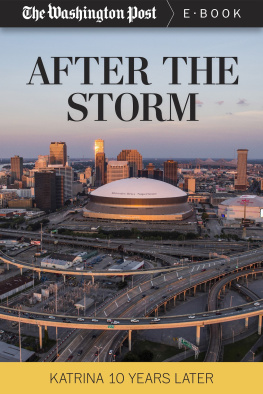Rising from Katrina
Rising
from Katrina
How My Mississippi Hometown Lost It All
and Found What Mattered
Kathleen Koch
Foreword by CNNs Anderson Cooper

J OHN F. B LAIR
P U B L I S H E R
Winston-Salem, North Carolina

| J OHN F. B LAIR
P U B L I S H E R
1406 Plaza Drive
Winston-Salem, North Carolina 27103
www.blairpub.com |
Copyright 2010 by Kathleen Koch
All rights reserved, including the right to reproduce this book or portions thereof in any form whatsoever. For information address John F. Blair, Publisher, Subsidiary Rights Department, 1406 Plaza Drive, Winston-Salem, North Carolina 27103.
Manufactured in the United States of America
J ACKET I MAGES
CNN producer Janet Rodriguez and the author with the residents
of the Second Street Elementary School shelter
C OURTESY OF J ANET R ODRIGUEZ / CNN
Plaintive plea at a former Bay St. Louis homesite
P HOTOGRAPH BY J OHN W ILKERSON
A portion of the proceeds from this book will be donated to Pneuma Winds of Hope and LESM Coast Recovery Camps, two nonprofit groups working on the Katrina recovery effort in Bay St. Louis.
Library of Congress Cataloging-in-Publication Data
Koch, Kathleen, 1959
Rising from Katrina : how my Mississippi hometown lost it all and found what mattered / by Kathleen Koch ; foreword by Anderson Cooper.
p. cm.
Includes bibliographical references and index.
ISBN 978-0-89587-383-5 (hardcover : alk. paper)ISBN 978-0-89587-384-2 (pbk. : alk. paper)ISBN 978-0-89587-390-3 1. Bay Saint Louis (Miss.) History21st century. 2. Bay Saint Louis (Miss.)Social conditions21st century. 3. Bay Saint Louis (Miss.)Social live and customs21st century. 4.Hurricane Katrina, 2005Social aspectsMississippiBay Saint Louis. 5.Disaster reliefMississippiBay Saint Louis. 6. Koch, Kathleen, 1959- 7. Bay Saint Louis (Miss.)Biography. 8. Women journalistsUnited States Biography. I. Title.
F349.B39K63 2010
976.2'14dc22
2010015462
D ESIGN BY D EBRA L ONG H AMPTON
M AP BY M IKE M ARTIN
To Mom and Dad,
who taught me anything is possible if I put my mind to it
Contents
T HOSE FIRST FEW DAYS AFTER K ATRINA came ashore, I was in Mississippi on the Gulf Coast. Id been in Baton Rouge, Louisiana, when the storm hit, and had followed it to Meridian, Mississippi, later that night. By the next morning, the hurricane had passed. While searching for gas, I met a woman who said I should go to Waveland. Its a small town, she told me, and I havent heard any news about it. Small towns often get passed over on big stories, but of course a hurricane doesnt make such narrow-minded judgments. I took the womans advice and headed for the coast. When I got to Waveland, a FEMA search-and-rescue squad was just beginning its work. It was searching for the dead, and it found plenty.
I stayed in Waveland for several days before heading to New Orleans. I will never forget what I saw there, and in Bay St. Louis, and in Gulfport, and all along the Mississippi Gulf Coast. Id spend the day driving around, talking to survivors, shooting stories. At night on the air, broadcasting for CNN, Id hear politicians thank one another, talking about the tremendous relief effort that was under way and what an unprecedented, unpredictable disaster this was. It was stunning. Katrina may have been unprecedented, but it certainly wasnt unpredicted.
In Mississippi in the days after the storm, the silence was shocking. There was little heavy earthmoving equipment, few trucks with aid rumbling past. Id stand in a field of timber that once was a street and hear the wind blow through the remains of peoples livesa sheet of plastic caught in a tree would rustle in the breeze, flies would buzz over the corpse of a dog. A few seconds intrusion, then silence once again.
Katrina touched all of us in different ways. My dad was from Mississippi, and wed visited the Gulf Coast together when I was little. Those of us with ties to Mississippi found it impossible not to see the past in the present. Kathleen Koch saw it all around her as she reported from Mississippi. Shed lived in Bay St. Louis. She had memories therefriends, too.
People would come up to reporters in those dark, difficult days and say, Dont let them forget about us. It always made me incredibly sad. The idea that our fellow citizens had to ask not to be forgotten.
Its been five years now, and much of what happened along the Mississippi Gulf Coast threatens to be forgotten. There have been other disasters since, other headlines that have captured the nations attention. But for the people along the coast, the storm winds still blow. There has been rebuilding and rebirth, but there is still much to be done.
Kathleen Koch saw it all firsthand and made sure the world saw what was happening to the town and the people she knew so well. Its been five years, but Kathleen has continued to follow whats happened in that town, and to those people. In these pages, she tells their story and her own deeply personal one. A story of survival and resilience, courage and compassion. It is a story none of us should ever forget.
Anderson Cooper, anchor of CNNs AC360
Rising from Katrina
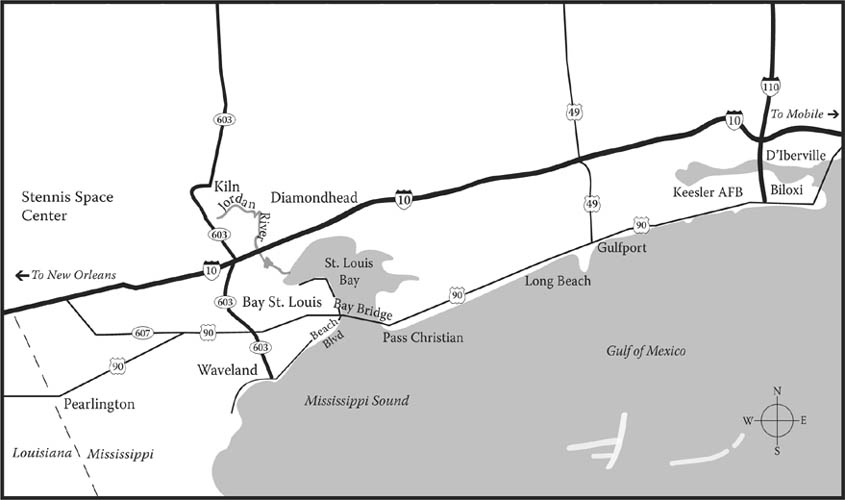

T HE AFTERNOON SUN STREAMED in the rear window of our white 71 station wagon. I yawned, stretched, and uncrossed my stiff legs. My sister Gerri leaned her head against the red vinyl interior and wiped the bead of sweat that ran down her neck.
When will we be there?
It was the dreaded road-trip question my mother had fielded at least a dozen times that day.
Soon, she assured us with a sigh.
Wed left before dawn. My parents routine on long drives was to pile my younger siblings, Mark, Laurie, and Krissy, into the car while they were still asleep and get a few blessed hours of quiet. Gerri and I would climb in the coveted rear-facing seat to read and talk as the miles went by. It was nearly seven hours from Huntsville, Alabama, to the Mississippi Gulf Coast. We were used to long drivesand moving. Dad worked in the aerospace industry. And at Martin Marietta, if he wanted to move up, he moved around. Bay St. Louis would be home number seven. We were always the new kids in school, peppered with the inevitable question: Where are you from? I hated it because I never knew how to answer. Should I tell them where I was born, where Id lived the longest, or where Id just left?
For us, home was portable, not permanent. Friends were people we knew for a while and then left behind. We kept on moving and never looked back. It was the only reality we knew.
Hey, kids, were almost at the water!
My dads excited voice was like a wake-up call. The scenery had changed. For hours, it had been a blur of tall southern pines broken only by gas stations and ragged roadside restaurants. Now, we saw beach souvenir shops. A bakery. A hardware store.
As we turned off Highway 90 and down a two-lane road into a residential area, we rolled down the windows to see if we could smell the salt water. A wave of humidity rushed into the car.
Were coming up to some tracks. Look both ways, said my mother.


